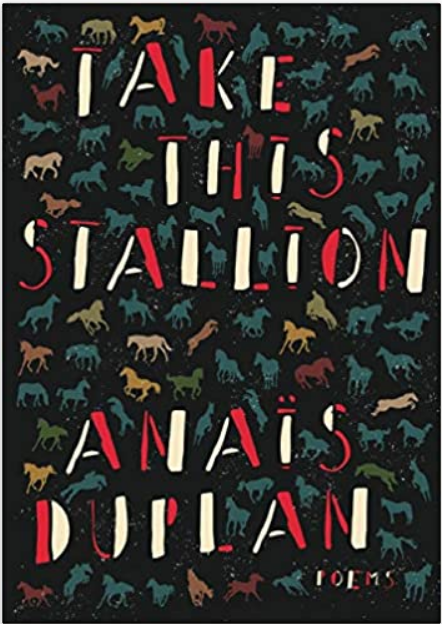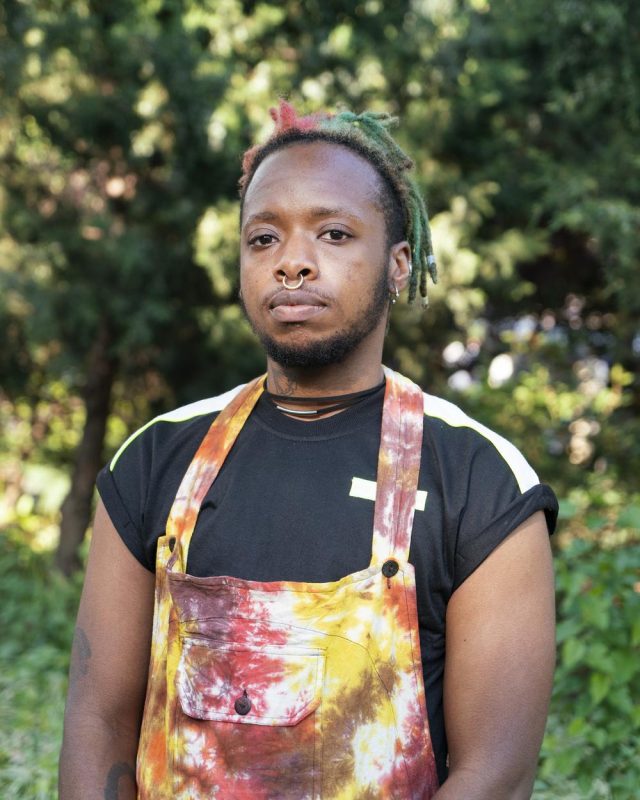
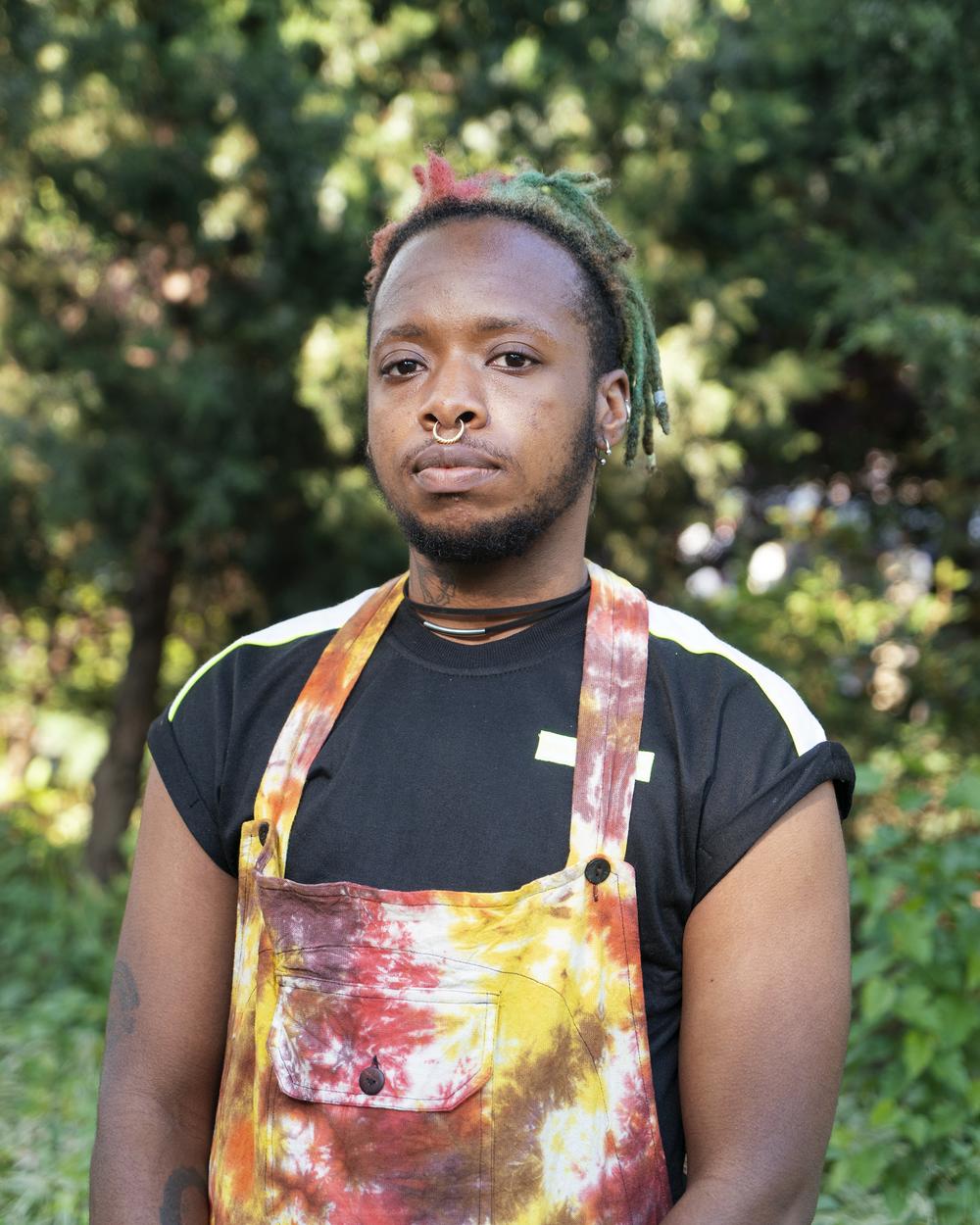
Anaïs Duplan
Award-winning Poet & Essayist
2022 Whiting Award-winner
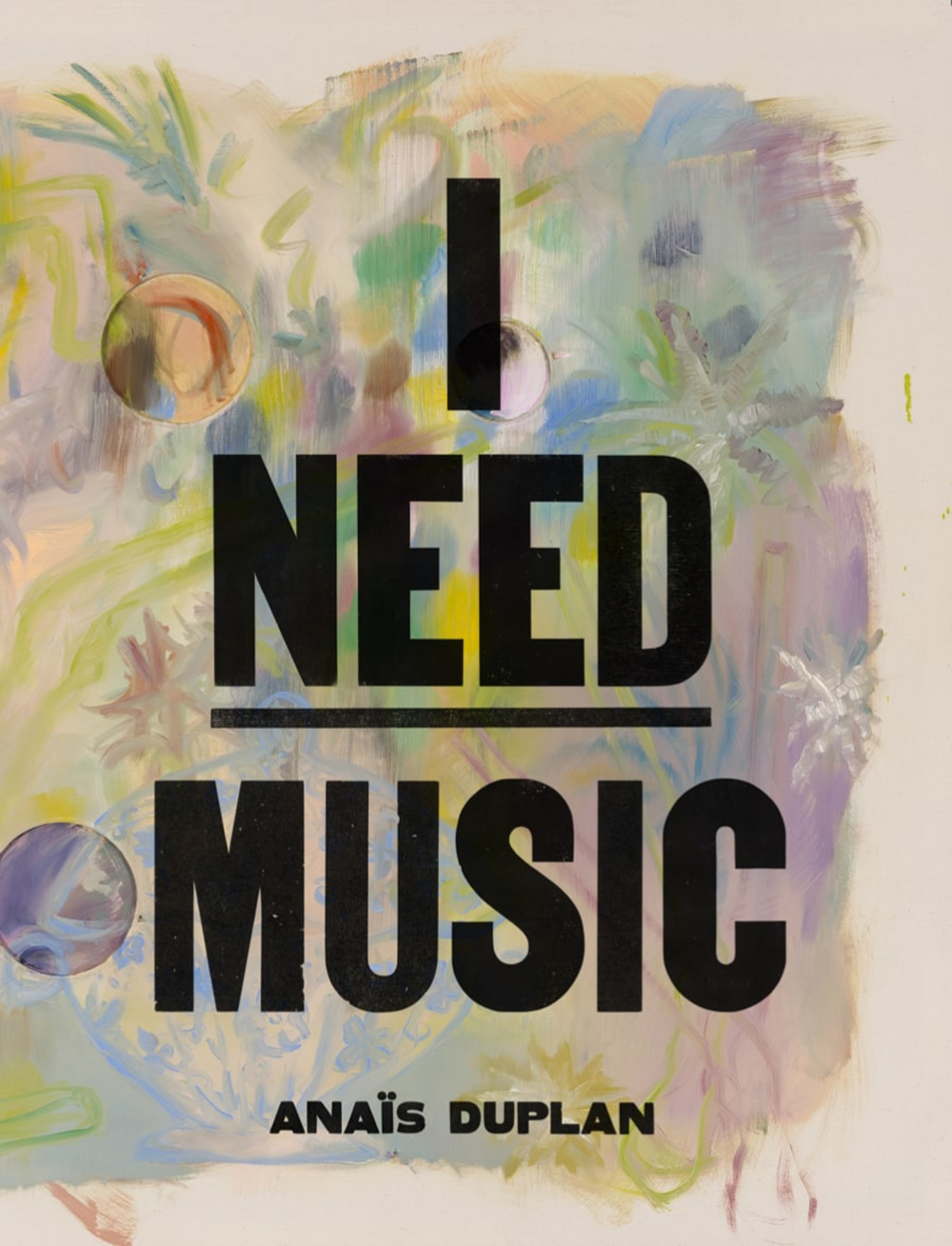
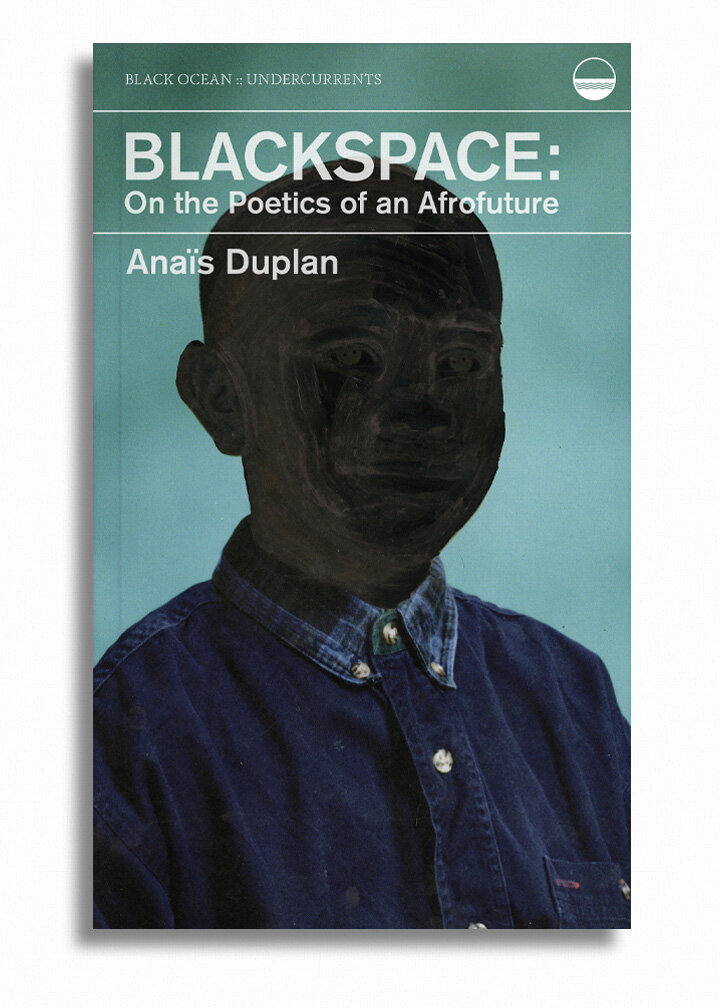
Readings &
Lecture Topics
- Outside the Box: Anaïs Duplan on Lubaina Himid
- Decolonizing Your Poetic Voice
- Poetics of Emotional Research
- Fiction Toolkit: Postcolonial Fantasy and Horror Writing
- An Evening with Anaïs Duplan
Biography
“This is futuristic work ― work that doesn’t just serve as a reminder that there will be black people in the future, but work that mines for an understanding of what that future will look like. In form, in shape, in language, and in endless vision.” —Hanif Abdurraqib
“Here are poems that revel in post-hybridity and borderless threnodies, and go straight to the stillness of the heart, to performances of language that are fierce and juicier than a papaya, and frankly, that one would only expect from a brilliant, young mind as theirs.” —Major Jackson
“Duplan skillfully models radical listening in the relationship he cultivates between the text and its audience, prompting us to reimagine our interactions with artistic tradition and our lives in language.” —Ploughshares
Anaïs Duplan is a trans* poet, curator, and artist. He is the author of the poetry collection I NEED MUSIC (Action Books, 2021), which reinvents ekphrasis as an act of devotion to art as both the sense-archive and future tense of Black embodiment; Blackspace: On the Poetics of an Afrofuture (Black Ocean, 2020), a collection of lyric essays that is the culmination of six years of multidisciplinary research about the aesthetic strategies used by experimental artists of color since the 1960s to pursue liberatory possibility; and the poetry collection Take This Stallion (Brooklyn Arts Press, 2016). He is also the author of the chapbook, Mount Carmel and the Blood of Parnassus (Monster House Press, 2017).
About Duplan’s debut collection, Take This Stallion, Jericho Brown observed, “I have never before read a book like Anaïs Duplan’s Take This Stallion. Duplan’s major talent is recognizing the self in the other, making for poems that flow forward in a tone of oneness—is oneness a tone?—poems that make evident an ever-expanding world by opening themselves up into that world. This debut does what poets in their fifth or sixth collections are still trying to figure: it balances the intellect, image, music, and emotion in ways so unfamiliar that a blurb couldn’t possible characterize the work.”
In 2016, Duplan founded the Center for Afrofuturist Studies, an artist residency program for artists of color, based at Iowa City’s artist-run organization Public Space One. As an independent curator, he has facilitated curatorial projects in Chicago, Boston, Santa Fe, and Reykjavík. He was a 2017-2019 joint Public Programs fellow at the Museum of Modern Art and the Studio Museum in Harlem, and in 2021 he received a Marian Goodman fellowship from Independent Curators International for his research on Black experimental documentary. He is the recipient of the 2021 QUEER|ART|PRIZE for Recent Work, and a 2022 Whiting Award in Nonfiction.
Duplan is a professor of postcolonial literature at Bennington College, and has taught poetry at The New School, Columbia University, and Sarah Lawrence College, and others.
Short Bio
Anaïs Duplan is a trans* poet, curator, and artist. He is the author of the book I NEED MUSIC; Blackspace: On the Poetics of an Afrofuture; Take This Stallion; and the chapbook, Mount Carmel and the Blood of Parnassus. He was a 2017-2019 joint Public Programs fellow at the MoMA and the Studio Museum in Harlem, and in 2021 received a Marian Goodman fellowship from Independent Curators International for his research on Black experimental documentary. In 2016, he founded the Center for Afrofuturist Studies, an artist residency program for artists of color, based at Iowa City’s artist-run organization Public Space One. He is the recipient of the 2021 QUEER|ART|PRIZE for Recent Work, and a 2022 Whiting Award in Nonfiction. Duplan is a professor of postcolonial literature at Bennington College, and has taught poetry at The New School, Columbia University, and Sarah Lawrence College, and others.
Visit Author WebsiteVideos
Publications
I Need Music
Poetry, 2021
In his fourth book, AnaÏs Duplan reinvents ekphrasis as an act of devotion to art as both the sense-archive and future tense of Black embodiment. In this vibrant thinkspace (where thinking is singing), Duplan hosts a vivid community of Black musicians, performers, painters, photographers, poets, critics, filmmakers and video artists, even a chorus of lovelorn chatroom denizens. I Need Music hosts the lyric re-arrivals of unquiet pasts, enacts a haptic intimacy with the present, and vibrates with the immanence of Black, queer futures.
BLACKSPACE: On the Poetics of an Afrofuture
Essay, 2020
Black artists of the avant-garde have always defined the future. Blackspace: On the Poetics of an Afrofuture is the culmination of six years of multidisciplinary research by trans poet and curator Anaïs Duplan about the aesthetic strategies used by experimental artists of color since the 1960s to pursue liberatory possibility. Through a series of lyric essays, interviews with contemporary artists and writers of color, and ekphrastic poetry, Duplan deconstructs how creative people frame their relationships to the word, “liberation.” With a focus on creatives who use digital media and language-as-technology—luminaries like Actress, Juliana Huxtable, Lawrence Andrews, Tony Cokes, Sondra Perry, and Nathaniel Mackey—Duplan offers three lenses for thinking about liberation: the personal, the social, and the existential. Arguing that true freedom is impossible without considering all three, the book culminates with a personal essay meditating on the author’s own journey of gender transition while writing the book.
Take This Stallion
Poetry, 2016
“I have never before read a book like Anaïs Duplan’s Take This Stallion. Duplan’s major talent is recognizing the self in the other, making for poems that flow forward in a tone of oneness—is oneness a tone?—poems that make evident an ever-expanding world by opening themselves up into that world. This debut does what poets in their fifth or sixth collections are still trying to figure: it balances the intellect, image, music, and emotion in ways so unfamiliar that a blurb couldn’t possible characterize the work.”—Jericho Brown
Articles & Audio
Read What’s In Print
• The Practice of Poetry: A Tool for Conducting Emotional Research – Poets House
• Review of I Need Music by Anaïs Duplan – Colorado Review
• Music is a Vehicle for Perceiving: An Essay by Anaïs Duplan – Port
• 2021 Recent Work Winner – Queer Art
• Anaïs Duplan Interviewed by Kaveh Akbar – Divedapper
• With Late Capitalism Hovering in the Background: In Conversation – Ploughsares
• Creating art while empowering artists – University of Iowa
• Poet delves into a Civil War spy’s hidden history – PBS Newshour
Listen to Audio
• On the Poetics of an Afrofuture: Interview with Anaïs Duplan – Broken Boxes Podcast
Selected Writings
• Read an excerpt from I Need Music by Anaïs Duplan – Folder Magazine
I WILL ALWAYS BE THAT (an essay originally published with Ploughshares)
In Defacing the Monument, Susan Briante writes, “Poets and documentarians can relativize their actions within a web of relations, to make the poem more than a receptacle of information forced into their already existing logics or realms of experience.” Throughout transition, I’ve often thought of my body as a poem––one whose semantics is a web of social relations I can’t quite parse, that no one can fully parse. More than a “receptacle,” my trans body necessarily relies on the creation of new subjective semantics.
I started wearing a binder my last few weeks in Iowa City. I was about to graduate. I’d already made plans to move to Chicago and get a second MFA, this time in Studio Art at SAIC, when I got an email from someone at Columbia offering me a teaching gig I didn’t ask for. So, I made plans to move to New York instead.
I was already far into writing my book, Blackspace: On the Poetics of an Afrofuture, when I started adjuncting at Columbia. About three years deep. I’d spent those years writing about artists of color who were pursuing their own versions of freedom through their art. People like Elysia Crampton and Darren Cunningham, Sondra Perry, Tony Cokes––a huge range of people pursuing a huge range of freedoms. I was interested in all the different valences of that word, “freedom.”
No one needs another book about the history of Black people’s oppression. Nor does anyone need another self-help book about how to decolonize your mind. There’s really amazing literature on both subjects––literature I don’t need to recapitulate––but it struck me that I couldn’t find a book that talked about freedom in all the ways I was interested in. There’s personal freedom, which is fairly psychological in nature and has to do with, amongst other things, how integrated my psyche is. There’s social liberation, which has to do with the struggles of the people in my particular social class. And then there’s the sort of liberation I read about in Buddhist literature: nirvana, enlightenment. I wanted a book that linked all three and that was written for people like me, QTPOC artists. So I wrote it.
I didn’t start wearing a binder because I thought I was trans. That thought, in all its clarity, didn’t come until much later. When I did wonder about it, it was, in Juliana Huxtable’s words, “A FLEETING THOUGHT OF SOMETHING FUNDAMENTALLY MEANT FOR A DIFFERENT BODY OR DISPOSITION.” At the time, I just liked how binders felt and wanted to wear one. After months of binding, though, the novelty of wearing a tight piece of clothing around my torso for hours a day wore off. My determination to bind, on the other hand, only grew. It was hard to ignore how free I felt when I was binding, even as it was painful, how it felt like I was really myself when I looked in the mirror.
When I left Iowa City, I was ready to face being trans. In Iowa, I’d felt like I was living under a microscope. I’d never experienced a white space quite like it, though I’d gone to college in Vermont and high school in rural, upstate New York. Those are liberal hippie towns. In Iowa City, I learned about how much white folks loved their football, I learned about Americana, and I witnessed the election of Donald Trump in a state that voted for him.
Settled in Harlem, renting an apartment from my cousin for far below market value, I started to look into hormone therapy. In New York, surrounded by Black queer people and with the promise that I wasn’t going to stand out, no matter how hard I tried, I knew what I needed to do. I could hear Fred Moten in my mind’s ear: “shoo bee doo bee I want to be free.”
*
The way getting on HRT worked was I went to a clinic that specialized in trans care and they gave me some handouts to read and some forms to sign. All I had to do was come back in two weeks and if I still wanted to go through with it, I could.
Those two weeks were strange and uncomfortable. My thoughts raced. I didn’t fully understand what I was doing, just that I needed to do it. I slept with one particular handout by my bedside and read it before I fell asleep every night and every morning. It listed the reversible and irreversible effects of testosterone: voice changes, irreversible; body fat distribution, reversible; body hair growth, irreversible; male pattern baldness, irreversible.
I watched YouTube videos of young, often white, trans men on their journeys to freedom. It was like everyone was using the same script: “Hi, my name is Hayden and this is my voice 10 months on testosterone.” Cut to the next scene. “Hey, I’m Hayden and this is my voice one year on testosterone.” I watched time-lapse videos of their faces slowly becoming more male, more angular, harrier. Something miraculous usually happened somewhere between ten and fourteen months. The face I was looking at would somehow, imperceptibly, go from “girl” to “boy.” My heart always began to pound at that particular moment. No matter how many times I watched other guys’ transitions though, I still felt like I was stepping into a total unknown.
*
“Let’s say the world is a zone from and within which life is constantly escaping,” writes Fred Moten in B Jenkins. I read B Jenkins religiously as I was writing Blackspace. I remember interviewing Moten, asking him for his comments on B Jenkins and him replying that, for him, the phrase “B Jenkins” will always refer to his mother, not the book. Now when I hold it, I marvel at the picture of Moten’s mother on the cover. Her smile is captivating.
“Poets sing the form of that endless running, that ongoing running on, always busting out of the sentence or cutting being-sentenced; but those broken songs, even in their incessant breaking away, cannot but bear the heavy burden of being-held,” Moten writes. Those time-lapsed faces, collapsing through months and years, track a sort of escape, one that is never exactly complete. “Passing” is an elusive, hegemonic, and exacting threshold that marches along in time with those changing faces, which do not escape the burden of “being-held” by the image of a gendered ideal. Does passing happen in the world or is it an escape from the world?
There are entire threads on Reddit for trans men to post pictures of themselves and ask the internet if they pass. “Do I pass and how old I look?” they often say. It strikes me that people are often generous on these subreddits and are extremely unlikely to tell someone they aren’t passing. That isn’t the point exactly. It’s more like if someone posted a picture on the internet and asked, “Am I valid?” and the internet responds, “Yes, you’re valid.” This ritual happens because the people saying “Yes, you’re valid” are also the people asking the question––a feedback loop of identification and validation.
At first, before my voice really started to drop and I was pretty regular but not totally regular about wearing my binder, I didn’t pass at all. In retrospect, I wish I’d asked people to stop using she/her pronouns at that point regardless, but I didn’t feel like I could make that request just yet. I wanted to “earn” it. Then my voice started to change––I downloaded an app that records the frequency of your voice and tracks it over time, letting you know whether your voice is in traditionally male or female range––and my body started to change, in small, private ways that only I was aware of. Knowing I was injecting myself with testosterone every week made it really hard to hear people use “she” to refer to me, even harder than before I started HRT. I was making an effort to change and no one was acknowledging it.
There was a point, about six months in, where I started to pass on and off. I looked like a twelve-year-old boy, so when I did pass, it was as a child. This was the hardest part of my transition (though sometimes I think I say that about every part of my transition). I would have an interaction in a deli where the cashier called me “miss,” then walk out onto the street and hear someone call me “sir,” then meet up with a friend who would use the pronouns I’d asked people to start using (they/them), then talk to an acquaintance who would mess up my pronouns and use she/her. It was a rollercoaster. I was a rollercoaster. Every time someone gendered me as male or just didn’t use she/her pronouns to refer to me, I felt euphoric. As soon as someone misgendered me, my mood crashed and I felt terrible. This went on for a long time, this sometimes-passing liminal space.
After a while, I realized how ridiculous the whole idea of passing is. It had to be ridiculous if I could be referred to with “he,” “she,” and “they” all in the same day. What exactly were people referring to when they used these pronouns? The way my face looked, the clothes I was wearing, the way I talked, carried myself? “WE REFLECT EACH OTHER AS MIRRORED DISTORTIONS,” writes Juliana Huxtable in Mucus in My Pineal Gland. I had no way to predict in what distorted way I would be gendered, for months on end. Eventually, daily life stopped feeling like a rollercoaster and started to feel more like I was floating in thin air, just directly above the real world, a world where gender was real.
Huxtable continues, “THE AGENCY ONE HAS IS TO PLAY IN THE REFLECTIONS, TO ALTER A POSTURE, DANCE WITH PERSPECTIVE, AND PLAY WITH THE INFINITUDE OF THE IMAGES AS THEY BOUNCE BETWEEN EACH OTHER AND CREATE PLANES OF LIGHT.” As soon as I learned not to let how I was being gendered control how I felt, I could reclaim my sense of self from the pronominal chaos being reflected back to me. I learned to “play in the reflections” and “dance with perspective.” It took about a year of hormone therapy before transition started to feel like healing, but not from a lifetime of “being in the wrong body.” I was healing the part of myself that was identified with my body, identified with a gender, with the person I was on any given day, with my interests, preferences, and dislikes. Identity itself as an idea fell apart and my sense of self started to “come from some of everywhere, somewhere so deep that some of / everywhere come with you,” if I may borrow again from Moten. It didn’t matter where I was headed, gender-wise, anymore. I stopped wishing for the day when I would pass all the time. I started living as myself, whoever that was.
*
Once I had facial hair––I won’t call it a beard because it was really just peach fuzz––I passed all the time. That was funny to me. Why did everyone assume a beard was a failsafe sign of my gender? There are plenty of cis women with beards. Or maybe my face had gone through that magical transformation I’d observed in other trans men’s faces on YouTube. I met a friend for lunch around that time, whom I hadn’t seen for a little while, and looking at me she said, “It’s a miracle.” It was a miracle. It still is one. That hormones could bring about such a total transformation in my lived reality.
“To look into the face of another is the first step to filling in the ever-shifting map that charts our connections and complicity, the writing that reveals inequalities as well as joy and beauty (that is not always ours), as we place ourselves in relation, in love, in an ethics and activism,” says Briante in Defacing the Monument. Looking into my face, others have filled in––each of them––a subjective map that charts our relation to one another based on (supposedly) observable information. We all do this; that’s not a surprising or new statement, but I do think that as a culture, we don’t often talk about what happens when we experience changes in our subject positions. I went from being perceived as a cis Black woman to being seen as a cis Black man. Looking into my face, I began to see the world reflect back stories about manhood, specifically Black manhood, that I had never experienced firsthand before. I had to learn new rules about touch, for example––who to touch when, who not to touch, what were polite forms of touch with someone I’d just met and with people of particular genders, at the beginnings and ends of conversations. A new map has begun to form in my own mind as I look into the faces of others and fill in the ways we are connected with each other.
*
Transition is never complete. For one, I still inject testosterone every week and will continue to do that as long as I live. My body continues to change in subtle ways. More importantly, though, because I lost a sense of my identity as a concrete thing, or even a reliable thing, the idea that “I” have reached a “final form” makes no sense.
Beautifully, Moten writes: “What can’t be said, can’t be said, and it can’t be whistled either. It can’t be whispered.” When I look at my body, I see a body I can’t articulate. When I look at my face, I see a face––nothing more, nothing less. I don’t see myself, exactly. Tomorrow I could be in an accident that would drastically change my body. Why should I be identified with how my body is now? Why should I try to speak it aloud?
This loss of identity has meant I’ve had to re-process all my life’s experiences through this new, more impersonal lens. I’ve had to re-experience all the people I’ve been and understand how all these versions of me are united, if not by identity. I’ve lost my “passion” for things I once loved, though not in the depressive sense. It’s just that none of the things I once loved feel like they’re integral to who I am anymore. I don’t have to write poems to live. I don’t have to dress a certain way or be in this body to live. I don’t have to be in a particular relationship to feel right. I am something impossible to perceive, something unchanged by hormones or life’s experiences. I am what perceives everything else, including myself. I will always be that.

